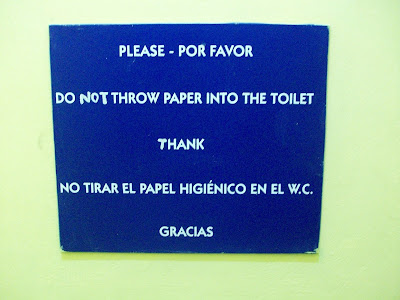Have you ever known that something was gone--known it as a cold, hard, fact; carried that fact with you every day--but the grief didn't strike you until much later?
Last week, a woman came to the eye clinic. She came toward the end of the day, all the way from some forsaken holler in rural Missouri, accompanied by every possible member of her family. She had her sister with the hooded sweatshirt, and her other sister with the home perm, and her dad with the faded spot on the back pocket of his jeans where he always carries the can of Skoal chew, and her mom in the wheelchair that she's been in ever since she lost both legs just below the hip in that accident on the railroad tracks.
She didn't want to come to the doctor's office alone. After several weeks of headaches behind her right eye, she had gone to see an optometrist near her home town. She'd never had her eyes checked before. At that optometry exam, the vision in her right eye was so poor that she could barely see a hand waved in front of her face. He dilated her pupil, examined her retina, and said that her eye had "tumors everywhere." He told her to travel to St Louis for an urgent exam with an eye malignancy specialist. She was terrified.
When we examined her that afternoon, it turned out that what the optometrist had thought might be tumors were actually scars from a retinal infection that had long-since burned out. That led to this conversation:
"When did you notice that the vision in your right eye was blurry?"
"A while."
"About how long ago? Think back to when you were a little girl. Did you have good vision then?"
"No, I never saw much from that eye. Not as long as I can remember."
"Has it gotten any worse?"
"No, it's always been this blurry my whole life as far as I can tell. It hasn't been a big deal."
We explained that she didn't have cancer, that her poor vision was from scars that had probably formed when she was very very young, that she didn't have any active infection in the eye anymore, and that the eye wasn't the cause of her headaches. Her family was extremely relieved. They hugged. They smiled. They started gathering their things to leave. But she paused a long time and then asked:
"So what can you do to bring back my vision?"
We gently explained that we don't have a way to bring back her vision. There's nothing we can do to reverse the damage from scars like hers.
And that's when the very surreal moment happened.
"You mean I'm blind in my right eye?"
She started to cry. First a sniffle, then tears, then crying. Sobbing really.
She'd had poor vision in her right eye her entire life.
She had known it. She had lived with it.
She had never asked for answers about it.
She had never looked for any help for it.
In that moment, her right eye was the same as it had always been.
But suddenly after 34 years of knowing it, she realized it.
Sometimes grief comes late, but it hurts just the same.

